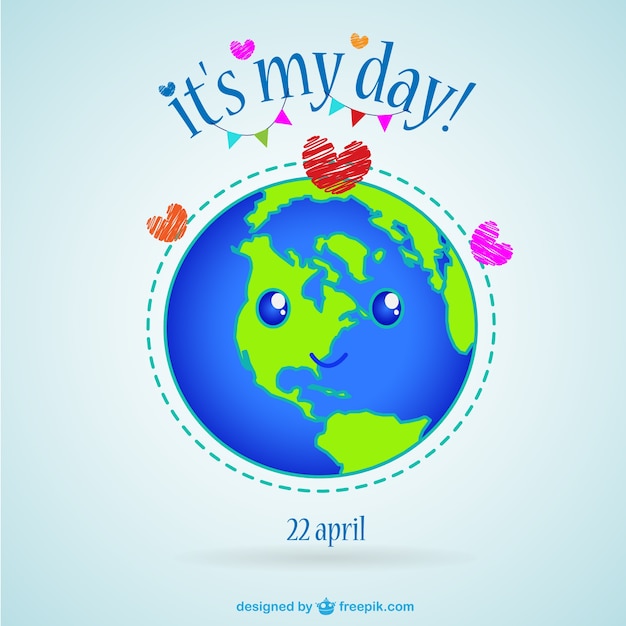Amazing Earth – Fun Facts for Kids

Did you know that Earth is the only planet in our solar system that has life?
Earth is home to more than 7 billion people from different countries and cultures.
The Earth is 4.5 billion years old – that’s really old!
Earth is mostly covered in water, with about 71% of its surface being oceans.
Earth has a strong magnetic field that protects us from harmful solar radiation.
The Earth’s atmosphere is made up of different gases, including oxygen which we need to breathe.
The highest mountain on Earth is Mount Everest, and it reaches a height of 8,848 meters.
Earth is slightly pear-shaped, with the North and South Poles being slightly flattened compared to the equator.
The Earth’s rotation gives us day and night, and it takes about 24 hours for a complete rotation.
Earth is the only planet known to have liquid water, which is essential for life.
The Earth’s crust is made up of different tectonic plates that constantly move, causing earthquakes and volcanoes.
The Great Barrier Reef in Australia is the largest living structure on Earth, and it can even be seen from space.
Earth has a rich diversity of plants and animals, including about 8.7 million species.
The Earth’s core is made up of iron and nickel, and it’s about as hot as the surface of the sun.
Earth has a natural satellite called the moon, which helps stabilize our planet’s rotation.
Amazing Earth – Fun Facts for Kids part 2
The Earth’s rotation is gradually slowing down, which means our days are getting longer, albeit very slowly.
The highest waterfall on Earth is Angel Falls in Venezuela, which drops water from a height of 979 meters.
Earth has four main layers: the inner core, outer core, mantle, and crust.
The Great Wall of China is so long that it can be seen from space by astronauts.
Earth is the fifth-largest planet in our solar system.
The Earth’s average distance from the sun is about 150 million kilometers.
Earth has fascinating weather patterns, such as tornadoes, hurricanes, and thunderstorms.
The Earth’s highest temperature ever recorded was 56.7°C (134°F) in Death Valley, California, USA.
The deepest part of the ocean is called the Mariana Trench, and it reaches a depth of about 11 kilometers.
Earth is tilted on its axis, which gives us different seasons throughout the year.
The Earth’s biggest desert is the Sahara Desert in Africa, which is larger than many countries.
The longest river on Earth is the Nile, stretching over 6,650 kilometers in length.
The Earth’s rotation causes the movement of ocean currents, which distribute heat around the planet.
Earth’s atmosphere is divided into different layers: the troposphere, stratosphere, mesosphere, thermosphere, and exosphere.
The Earth’s oceans are home to incredible creatures, such as blue whales, which are the largest animals on Earth.
Earthquakes are caused by the shifting of tectonic plates beneath the Earth’s surface.
The cleanest air in the world can be found in Antarctica, which has very low pollution levels.
Earth has the perfect combination of distance from the sun and atmosphere to support life as we know it.
The Earth’s rotation is also responsible for the Coriolis effect, which causes winds to curve.
Earth’s magnetic field is what allows compasses to work, helping us navigate.
The Grand Canyon in the United States is one of the Earth’s most stunning natural wonders.
The Earth’s land is divided into different continents, including Africa, Asia, Europe, North and South America, Australia, and Antarctica.
The Earth’s largest rainforest is the Amazon Rainforest, which covers millions of square kilometers in South America.
The Earth’s moon has a limited amount of gravity, which is why astronauts can bounce around on its surface.
The Earth’s atmosphere is composed of different layers of gases, including nitrogen, oxygen, carbon dioxide, and trace amounts of other gases.
The Earth’s rotation also causes the movement of ocean tides, which are essential for marine ecosystems.
The Earth’s magnetic field is what causes auroras, also known as the Northern and Southern Lights.
Earth is our only home for now, so it’s important to take care of the planet and keep it clean.
The Earth’s ozone layer protects us from harmful UV radiation, which can cause skin cancer.
The Earth is constantly changing and evolving, and scientists are always discovering new things about our amazing planet!

